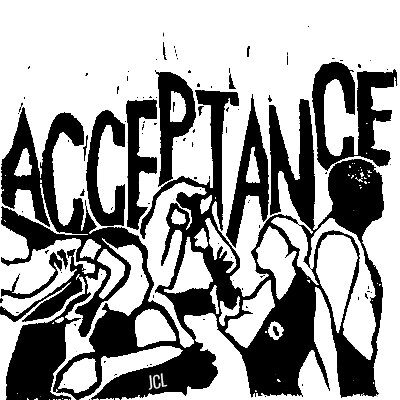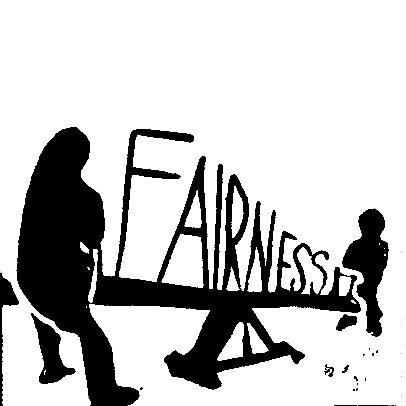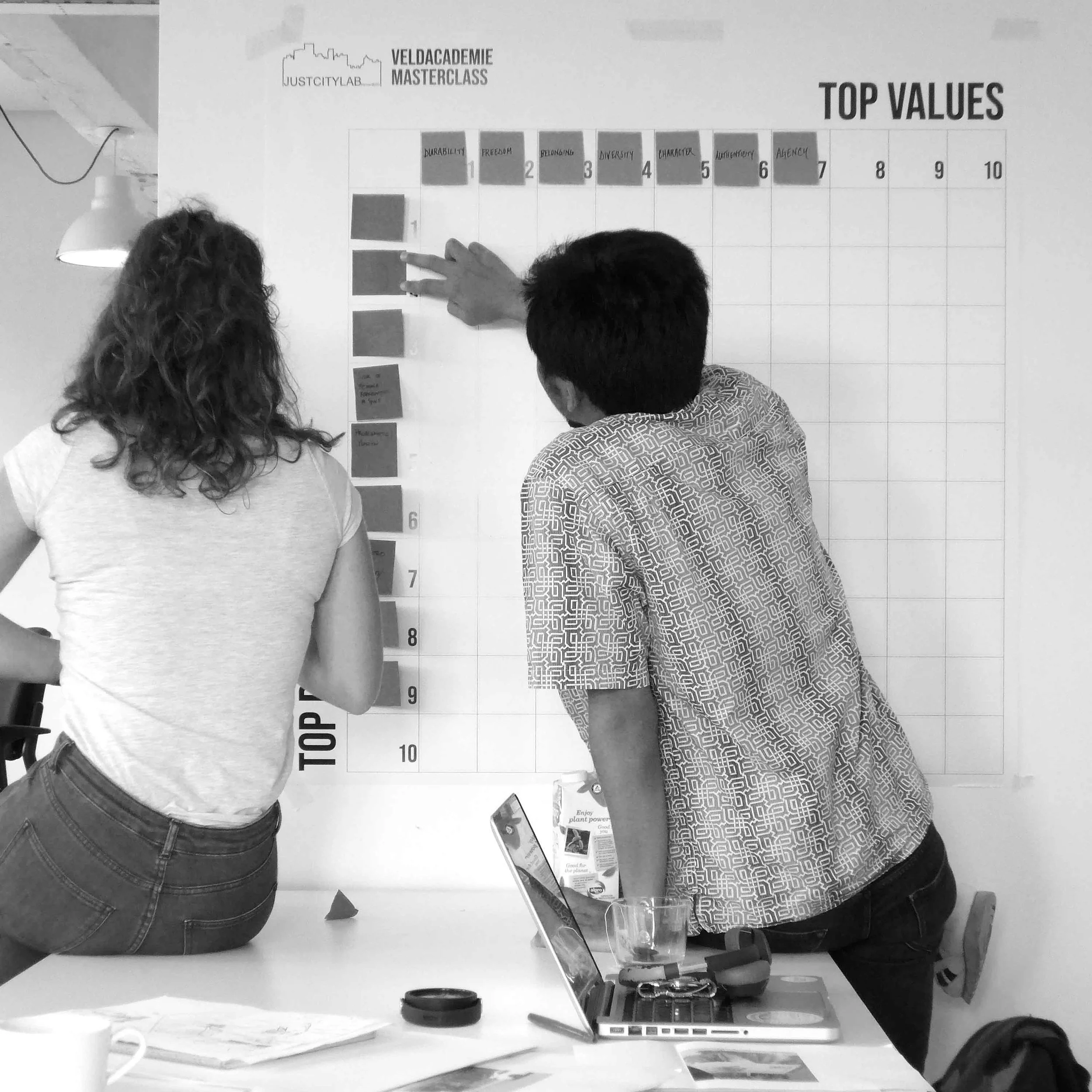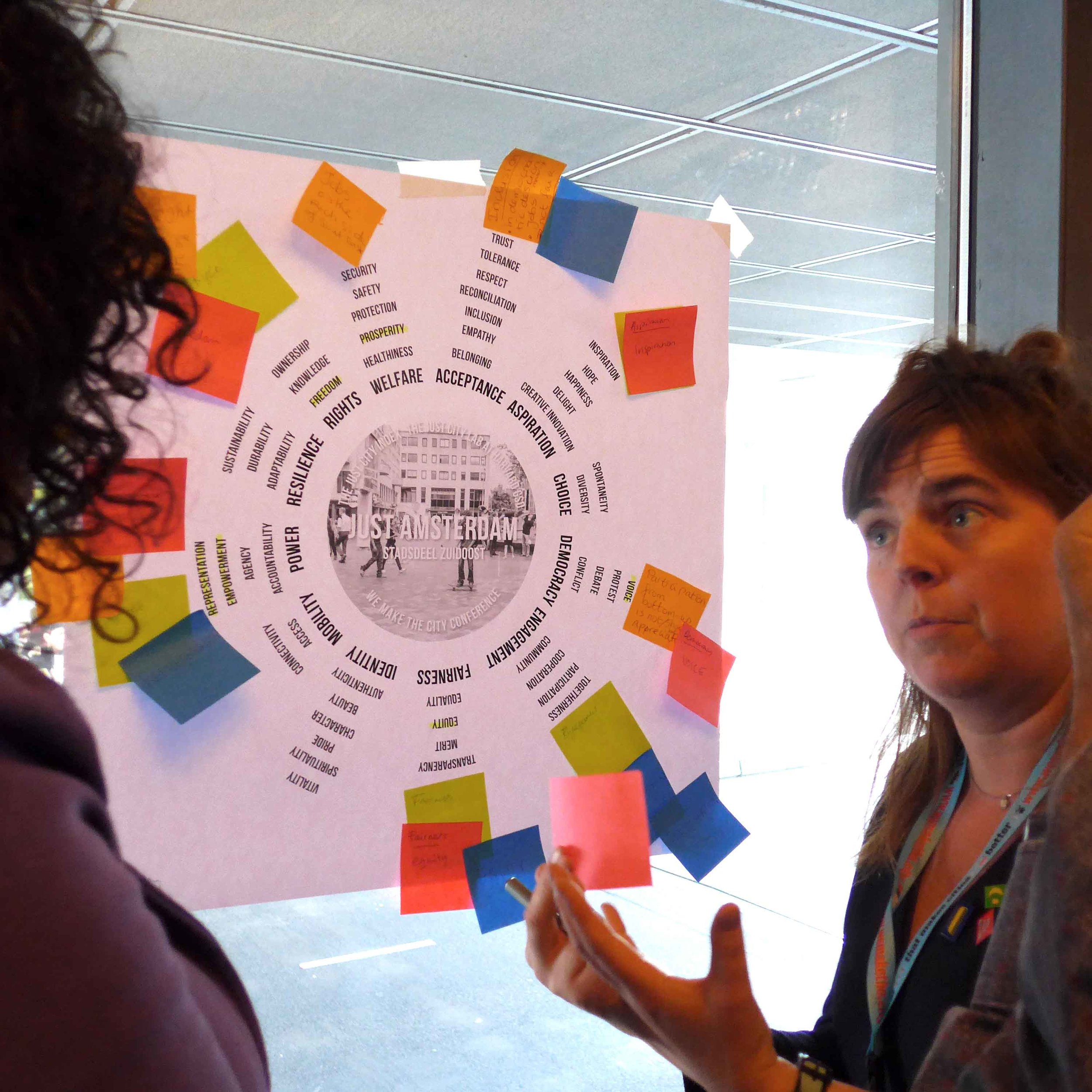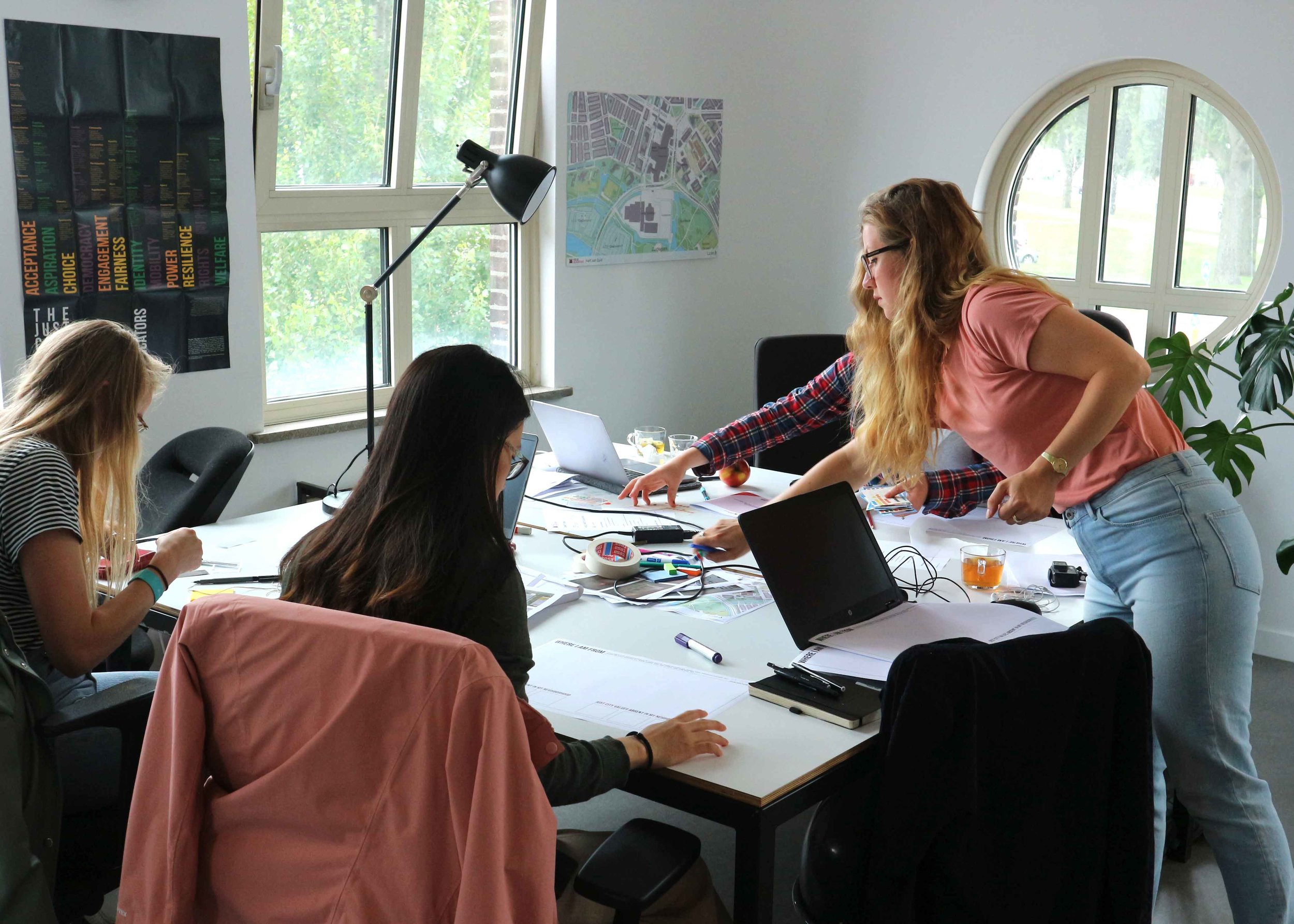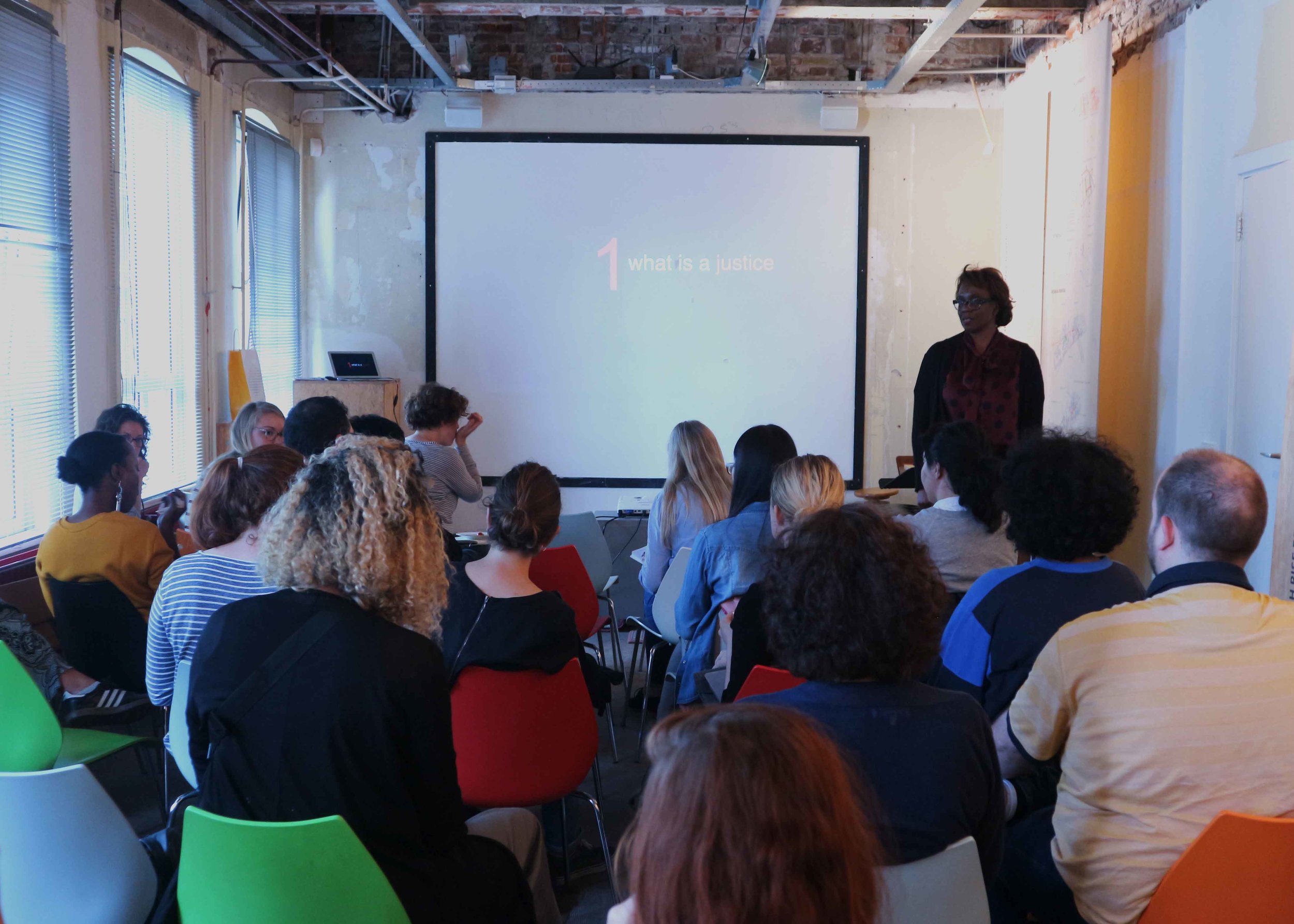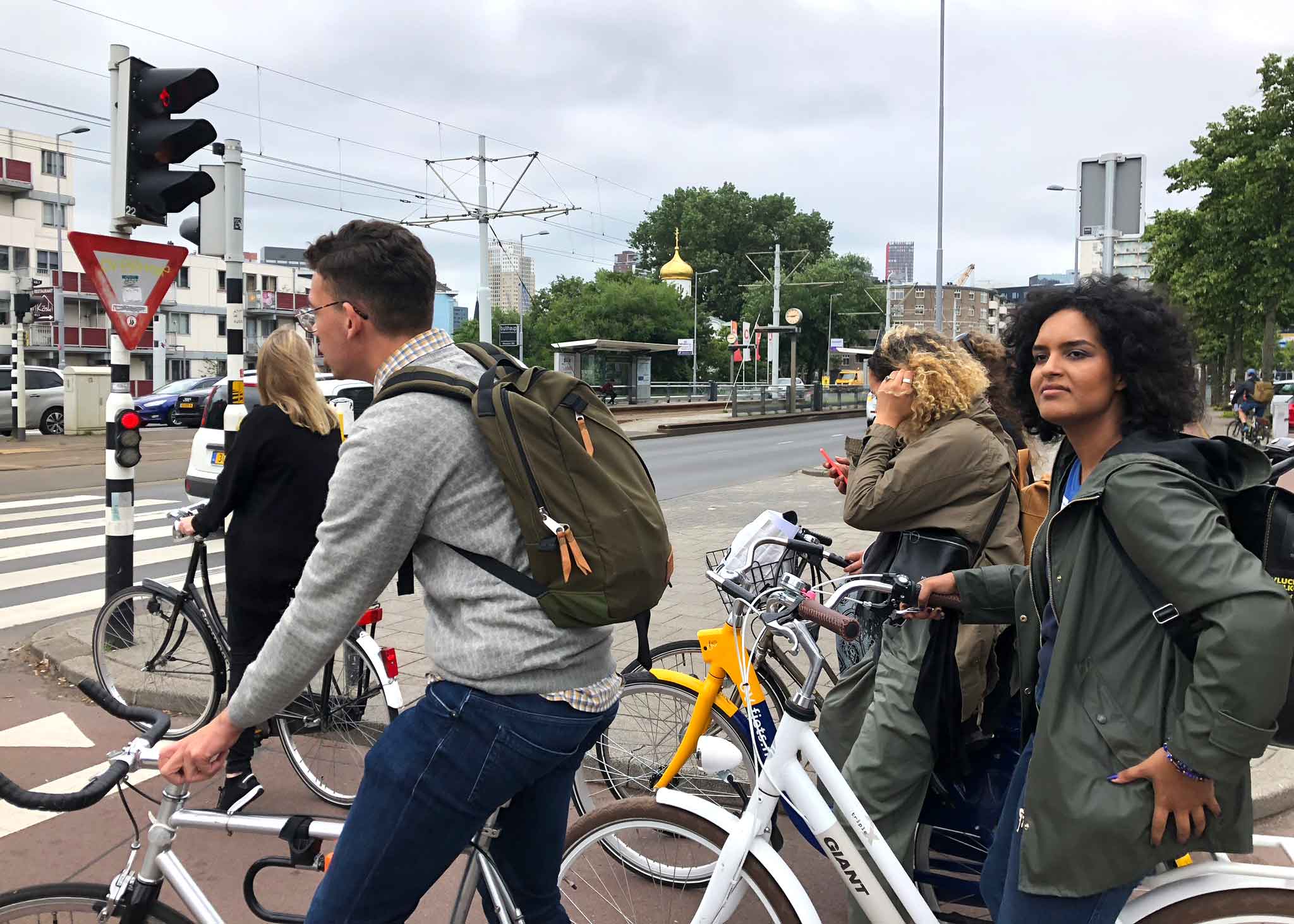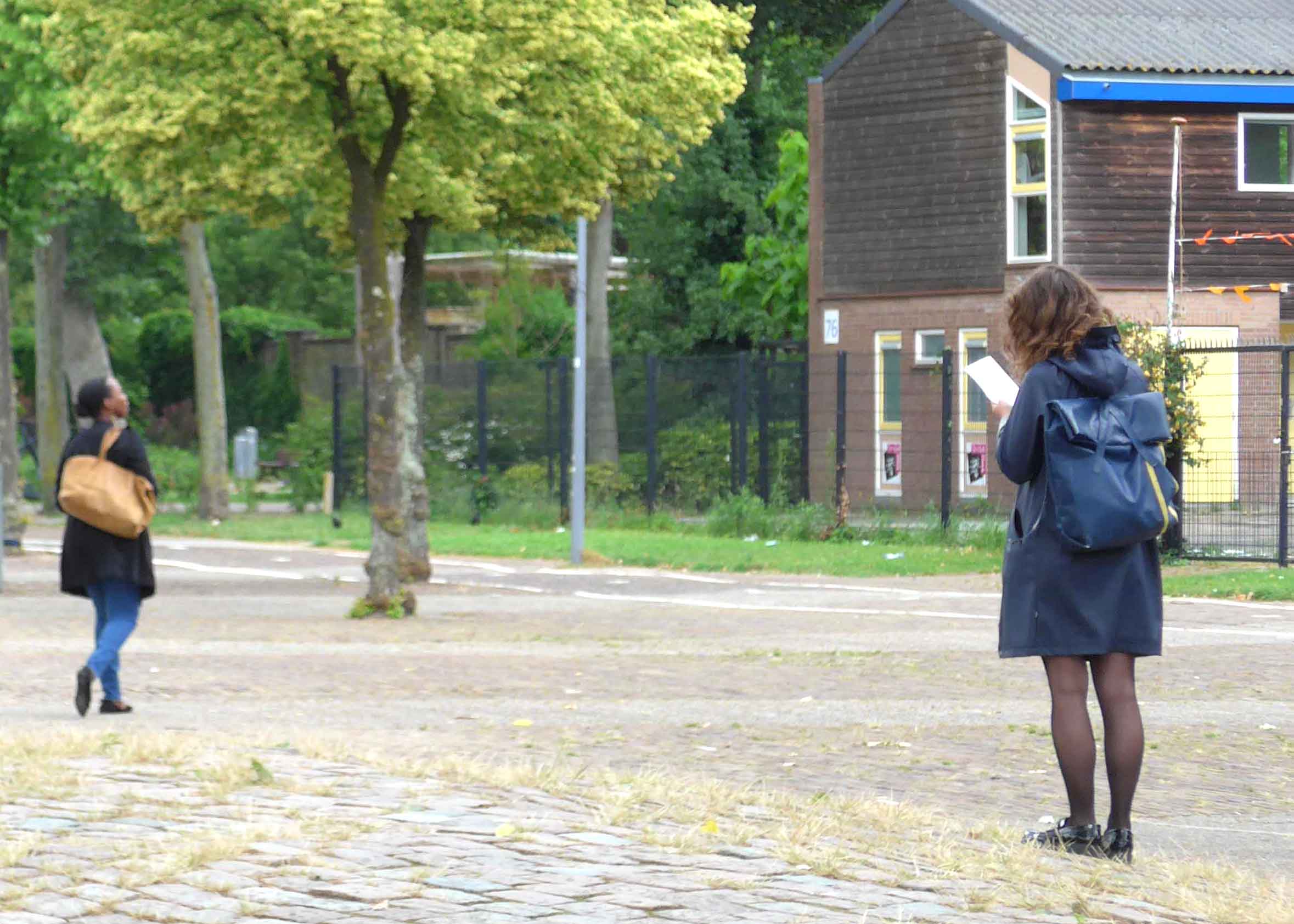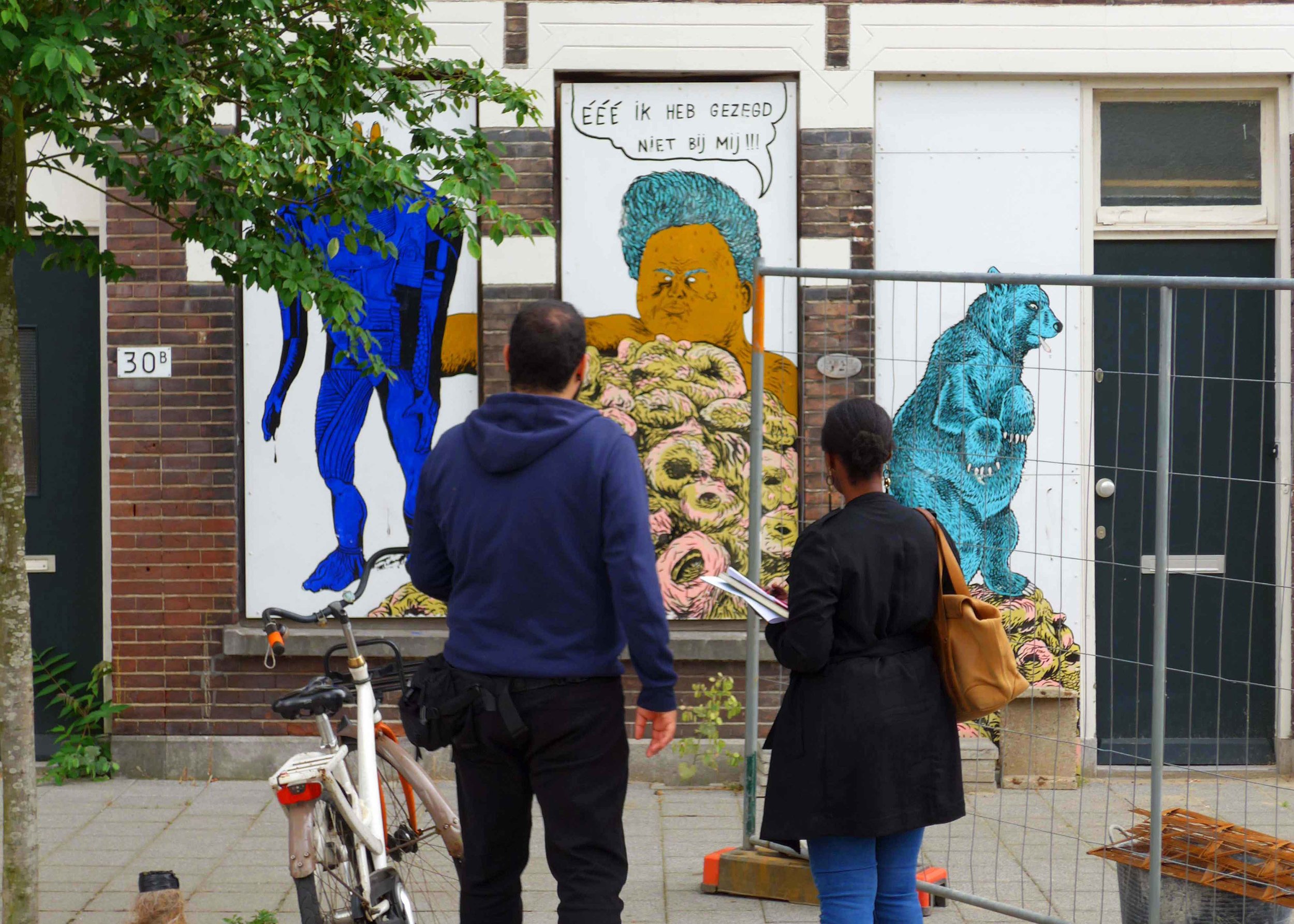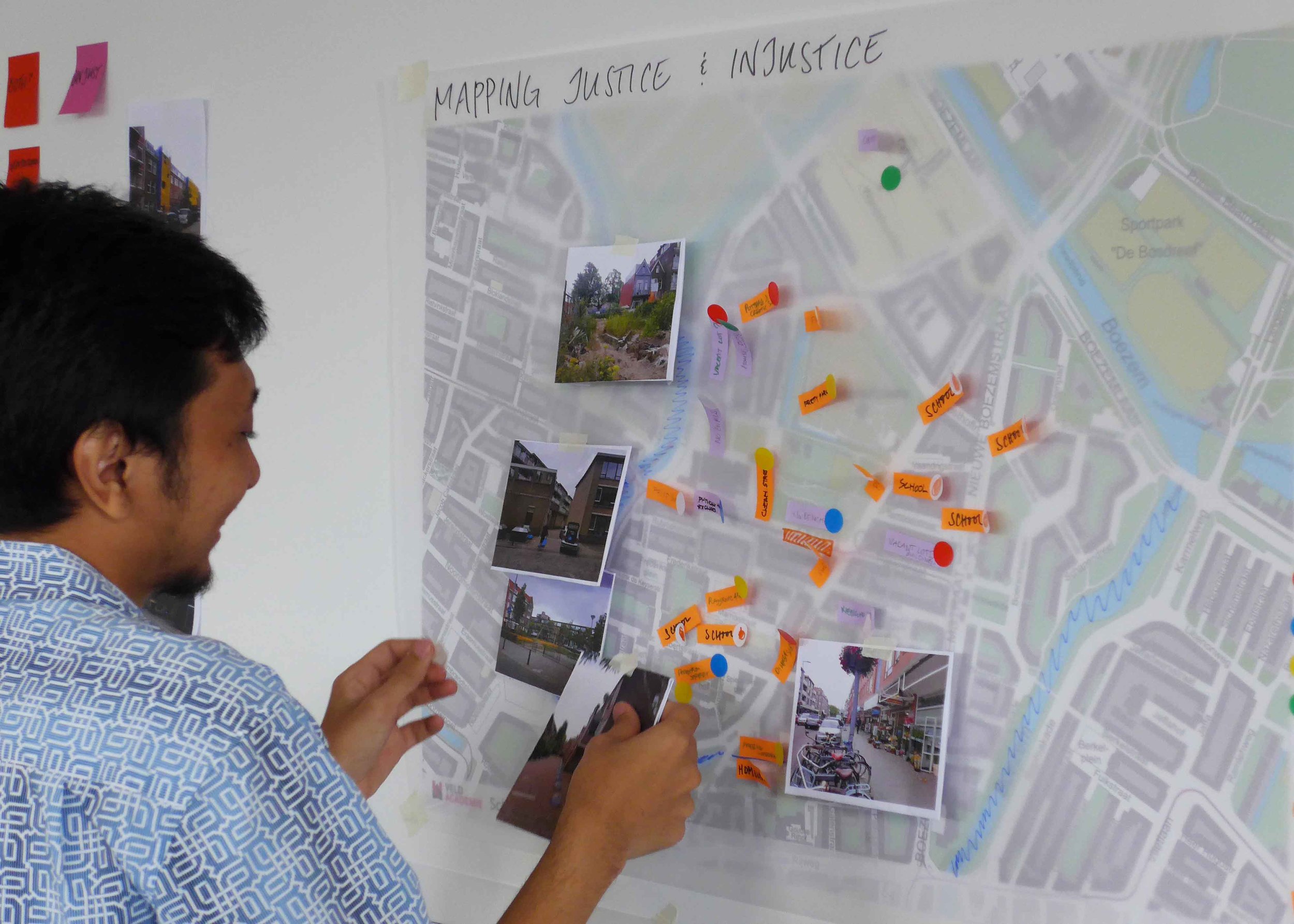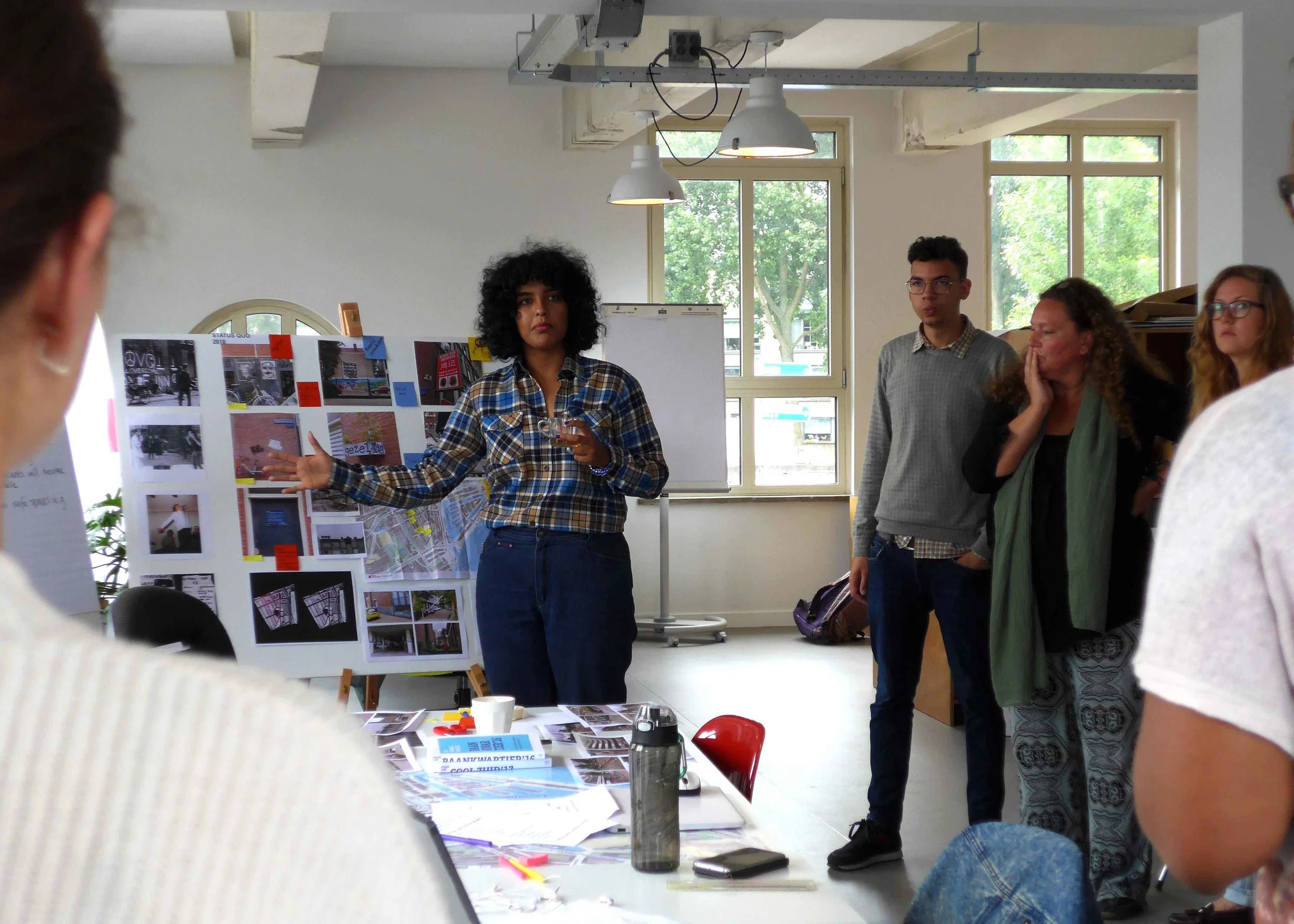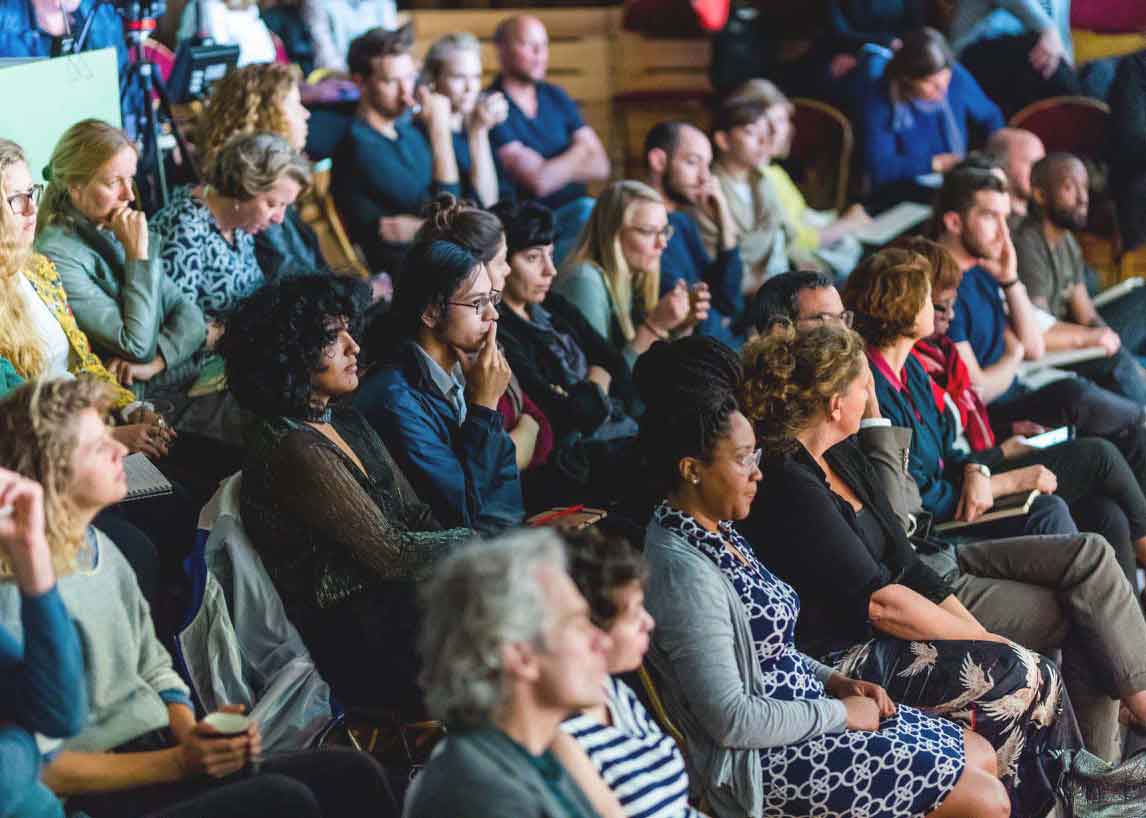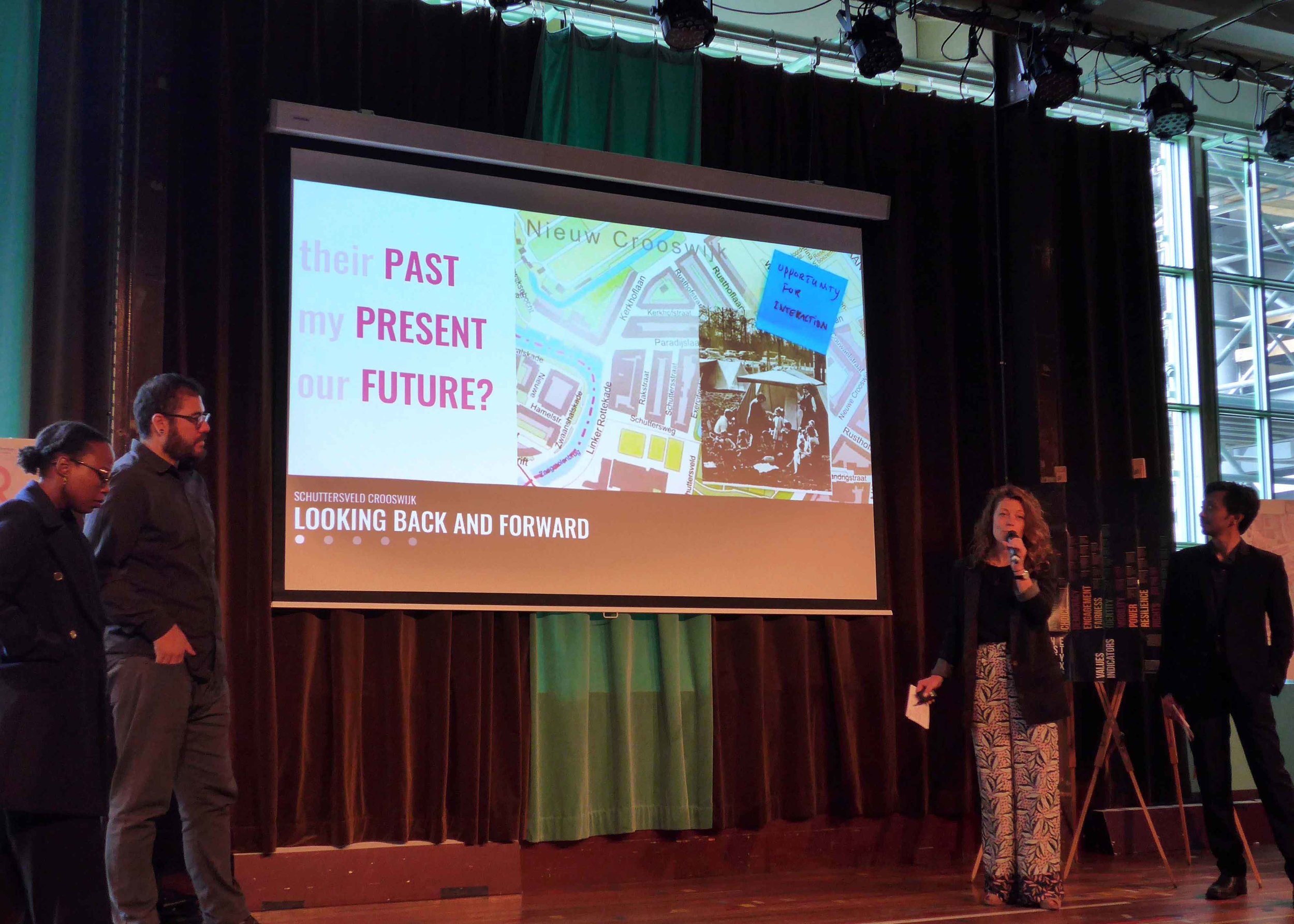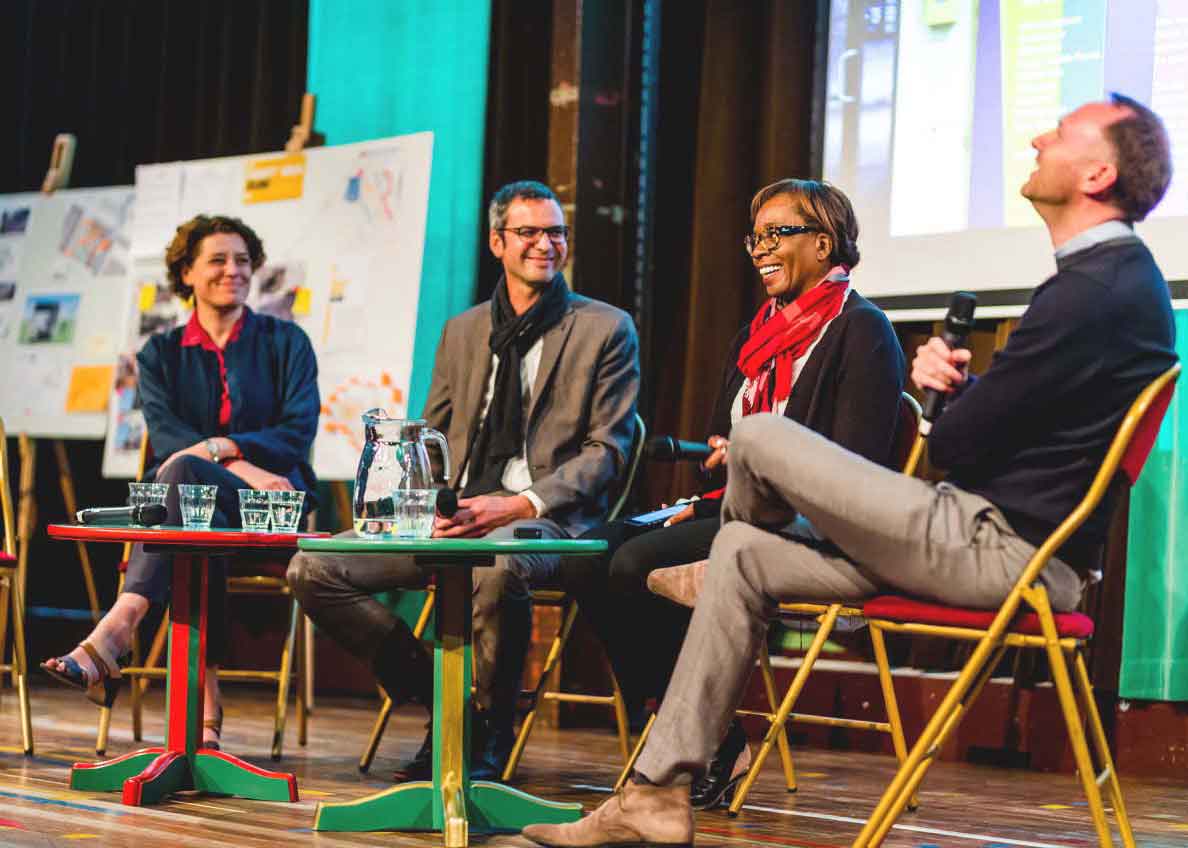values
An index for value-driven design
The Just City Index has been developed over the last five years as a result of research and crowdsourced input on the values communities desire in their cities and neighborhoods to combat conditions of injustice. Many wellbeing frameworks prescribe a limited set of values or principles to define a community as resilient, sustainable, livable or happy. But each city and neighborhood has a unique set of qualities, conditions and inhabitants — which means they require different measures of wellbeing.
The Just City Index is a framework of 50 values, to be used as a tool for communities to establish their own definition and principles for what make each city or neighborhood more just. To define your Just City, explore the Index and our set of engagement tools.
TOOLS
Engagement tools to use in your community
In our workshops and masterclasses, we use a range of tools to guide participants through the Design for the Just City process. Download our tools and tutorials below to start doing it yourself. Your group will reflect on conditions of justice and injustice in their cities, align on the Just City values most important to their sites, and generate value-driven design responses to conditions of injustice.
workshops
A charette to envision your Just City
We've engaged with collaborators around the world to develop 2-3 hour workshops for a range of contexts, durations, and group sizes. Throughout the process and in small table groups, participants are asked to reflect on their own experience of values in the cities they call home, to negotiate values critical to addressing injustices with their value clustering posters, and to generate design possibilities to take forward.
cambridge • OCT 2019
Two day workshop at Harvard GSD's third Black in Design conference
amsterdam • JUN 2018
Workshop at the 2018 We Make the City conference, drawing over 80 attendees
JOHANNESBURG • MAY 2018
Workshop at Wits Institute, focused on the Corridors of Freedom project
MASTERCLASSES
A transdisciplinary curriculum for designing justice
A Just City Lab masterclass is a custom-designed and immersive multi-day training experience with hands-on discussion, workshops and lectures.
In our first masterclass — a collaboration with Rotterdam's Veldacademie — we worked with over 20 students from four universities and a variety of disciplines in Europe's largest port city. Focused on four sites at critical junctures in this diverse, rapidly changing city, we guided each group through an intensive, five-day, studio-driven curriculum with lectures interspersed throughout. Each group presented their final results to local officials and community members on the final day of the program. A brief overview of the curriculum can be found below:
- Day 1: Orient to Program and Case Study Sites
- Day 2: Engage with Design for the Just City Methodology
- Day 3: Deepen Intervention Ideas
- Day 4: Make Connections Across Interventions
- Day 5: Present Final Results



